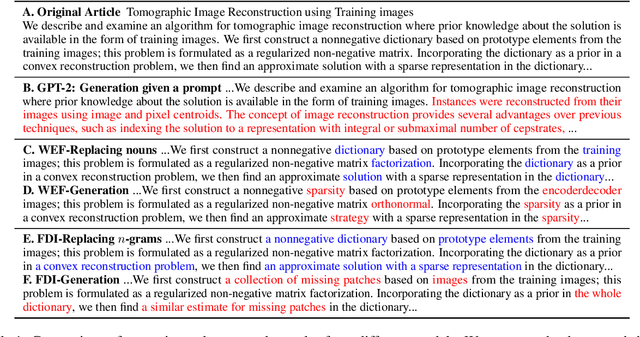Erick Skorupa Parolin
Synthesizing Political Zero-Shot Relation Classification via Codebook Knowledge, NLI, and ChatGPT
Aug 15, 2023



Abstract:Recent supervised models for event coding vastly outperform pattern-matching methods. However, their reliance solely on new annotations disregards the vast knowledge within expert databases, hindering their applicability to fine-grained classification. To address these limitations, we explore zero-shot approaches for political event ontology relation classification, by leveraging knowledge from established annotation codebooks. Our study encompasses both ChatGPT and a novel natural language inference (NLI) based approach named ZSP. ZSP adopts a tree-query framework that deconstructs the task into context, modality, and class disambiguation levels. This framework improves interpretability, efficiency, and adaptability to schema changes. By conducting extensive experiments on our newly curated datasets, we pinpoint the instability issues within ChatGPT and highlight the superior performance of ZSP. ZSP achieves an impressive 40% improvement in F1 score for fine-grained Rootcode classification. ZSP demonstrates competitive performance compared to supervised BERT models, positioning it as a valuable tool for event record validation and ontology development. Our work underscores the potential of leveraging transfer learning and existing expertise to enhance the efficiency and scalability of research in the field.
Controllable Fake Document Infilling for Cyber Deception
Oct 18, 2022



Abstract:Recent works in cyber deception study how to deter malicious intrusion by generating multiple fake versions of a critical document to impose costs on adversaries who need to identify the correct information. However, existing approaches are context-agnostic, resulting in sub-optimal and unvaried outputs. We propose a novel context-aware model, Fake Document Infilling (FDI), by converting the problem to a controllable mask-then-infill procedure. FDI masks important concepts of varied lengths in the document, then infills a realistic but fake alternative considering both the previous and future contexts. We conduct comprehensive evaluations on technical documents and news stories. Results show that FDI outperforms the baselines in generating highly believable fakes with moderate modification to protect critical information and deceive adversaries.
 Add to Chrome
Add to Chrome Add to Firefox
Add to Firefox Add to Edge
Add to Edge